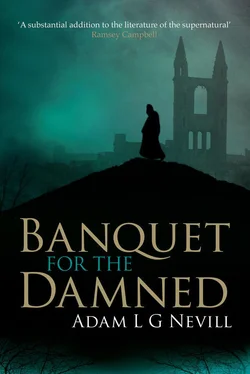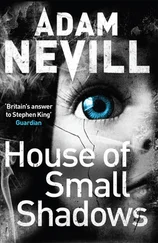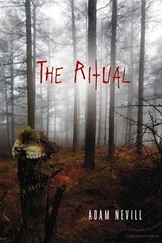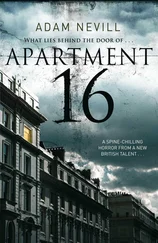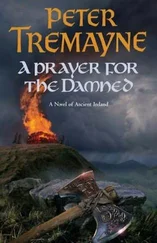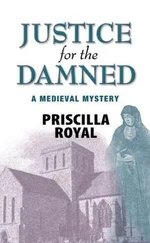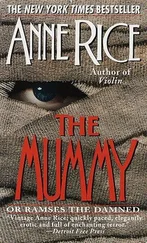Hart runs his fingers across the smooth surface of the table; a coincidence?
'Anyone visited by the Upyr at night would succumb to fevers and what have you, sometimes with terminal results. Once again, there was a plague of blood-letting, the disappearance of infants, and cannibalism. Their goal: the absorption of their victims' souls into their god's corporeal body. A blasphemous inversion of taking Christ's body and blood into the body, by devouring parts of the victim. In order, you see, for their deity to exist and for their powers to continue. The church believed the Upyr to be a direct inversion of Christian sainthood.
'And this was the crux of Eliot's argument. He believed the witch, werewolf, and vampire traditions were one and the same thing. Different places and times afforded them different names, but the familiars became crucial. A hangover from pre-Christian times. There seemed to be some pretty compelling evidence too, that these things actually existed.'
Rhodes pauses to look at Hart. 'Oh, I am sorry. I must be detaining you.'
Hart clears his throat. 'No. It's very good of you. Please go on — really.'
Rhodes refolds his hands and resumes his pacing, unaware of how painful some of the material is to Hart. 'The Upyr , it was discovered, entered their trances after taking opium or datura. The drug enhanced their professed abilities to direct the familiar and allow it to attain corporeality elsewhere, so it could perform its foul business. Either at the home of the bewitched or at a more convenient location, where the victim would be transported and devoured. Once an opening had been attained in one household, it was said the relatives of the initial victim also became susceptible to attack.'
Hart's eyes feel like they are burning in their sockets from the strain of watching the steadily pacing and relaxed bibliophile, while he struggles simultaneously to maintain his composure. Rhodes moves behind Hart, leans across him and begins leafing through the Blackwood tome. His eyes light up, brighter than ever. 'Ah, right here, chapter seven. It gives details of how Cardinal Kossa rescued the large Polish town of Lublo with his pitiless persecution of the Upyr . The plague ended with large-scale burning, beheading, and skewering, I believe you'll find, over a two-year period. Nearly three hundred people died. Mercenary soldiers were even employed to execute the church's decree. In each case, the heart of a Upyr was removed and burned, after the removal of the limbs from the torso.'
Hart rubs at his face — these are echoes from Guatemala and the Amazon Basin.
Rhodes pauses to glance at his watch. 'Oh, I say, I really must be getting back to my work, but I still have the copy of the Wilkins. Must think about sending it back to its home in Massachusetts. Been waiting for Eliot's say-so. I'll mark the relevant section. You really must read it. The story emerges right here, on our doorstep in St Andrews.'
'Thanks,' Hart says. 'Thanks for the information, Mr Hodgson. It clears up some of the more difficult things that Eliot has been telling me.'
'Quite all right. I really miss working on the project. You can see why it stuck in my mind. And do please tell Eliot to get in touch. I have given up calling his office. He never seems to be there. And then I heard he was ill for some time. One doesn't really know what to do in these situations.'
'No,' Hart agrees. 'But… Did Eliot actually believe these things — the familiars — existed?'
Rhodes laughs, cheerfully, before answering, 'I shouldn't think so.'
'But why did he research them particularly?'
The librarian raises an eyebrow. 'You have me there. Mythical figures perhaps? And he was an expert on Agrippa of course, and something of an authority on Crowley. Both men allegedly summoned a familiar that never left them.'
Hart swallows. 'Did he ever mention his paranormal group?'
Rhodes appears pensive for the first time. 'He referred to it once or twice, and I know there was a bit of a stink over it. Never went myself, but his assistants did. They came here with him sometimes.'
Hart leans forward. 'You remember them?'
'Oh yes. There was a very pretty girl, who came at the end of last year, I believe. Or was it earlier this year? I can't remember when, but I believe she was helping on the project, with his regular research assistant, Ben.' Rhodes pauses, looking almost guilty. 'That poor lad, Ben Carter.'
'I heard about that,' Hart says. 'He died on the beach.'
'On the sands, the West Sands,' Rhodes answers, obviously reluctant to continue with the story, but Hart presses on. 'But the girl. She all right?'
'I presume so. Never really knew her. Beth was her name. Eliot was very fond of her.'
'Was she really tall? With bones like a supermodel? Dresses all in black?'
'That's a fair description. You don't know her?'
'No. But I've seen her around.'
After Rhodes Hodgson leaves the reading room to potter in a distant confine of the vaults, Hart remains in the basement, with a copy of the Wilkins volume, A Geography of the Black Arts , open on the table before him. And, as Rhodes warned, Wilkins's passion was for Scotland.
The first marked chapter begins with comments about the Scots' ability for second sight. Even as late as the eighteenth century, Boswell and Johnson were documenting the phenomenon amongst ordinary people. Not to mention the reverence attributed to those in possession of an extra sense. And psychic abilities, thought to belong to the region between death and resurrection, had been highly prized and cultivated by the witch covens of Scotland since the dark ages. Hart begins to enter familiar ground.
Oblivious to the passage of time, Hart settles into the warmth in the basement, his eyes soothed by the clear yellow light. Stretching out his legs, he resumes reading about the proliferation of the Brown Man myths. Legends that draw him further into Eliot Coldwell's world and to a remarkable set of coincidences. Parallels to what he has so far uncovered in the town.
When Wilkins writes of St Andrews's birth in 870 as an ecclesiastical centre, he mentions the uneasy alliance of the barbaric Pictish religion and Christianity. Wilkins guesses that the strange fusion of Christian belief and Pictish myth, occurring at this time, created a subversive undercurrent of pagan belief. But one fused with Christian superstition that fostered witchcraft. More importantly, it led to the continuation of a profane worship of the 'Brown Man'.
Historians placed the figure as a strange amalgam of the Greek god Dionysus, the deity of Athens called Melanaigis, or the 'Black One', and Pan, the leader of satyrs. Elsewhere in Europe, the Gallic stag-god Cernunnous was cited as an influence for the 'Brown Man', while the Romans, busily building Hadrian's Wall to keep 'it' and the Picts out of England, wrote of it as Dispaster, god of the underworld. And by the time the Papal Bulls were brought to the town, the Roman Catholic belief in good and evil associated the deity and the worship of it with the devil.
Wilkins detailed the survival of the 'Brown Man' cult with a plethora of quotes from bishops and officials, defaming its dreadful rites. In the seventh and eighth centuries attempts to suppress the 'mumming' dances only succeeded in forcing the cult underground. The 'mumming' ceremonies involved the ancient ritual of dressing like the figure in order to rejoice and exult in its honour. The witches, as Wilkins referred to them, would drape themselves in the skins of cattle or the cerements of the dead and literally become wild animals. Others would dance naked, but daub themselves in darkly coloured clay. The feverish dances and ecstatic worship would become orgiastic, in the hope that a union with the god could be achieved. At the Sabbaths, it was believed every conceivable perversion was performed, including cannibalism. Sacrifice of the young was particularly popular and was always preceded by a strange backward dance. Back to back, hand in hand, the witches would skip backward and shake their heads in a frenzy until an animal madness was induced to prepare the coven for the arrival of the Brown Man.
Читать дальше
